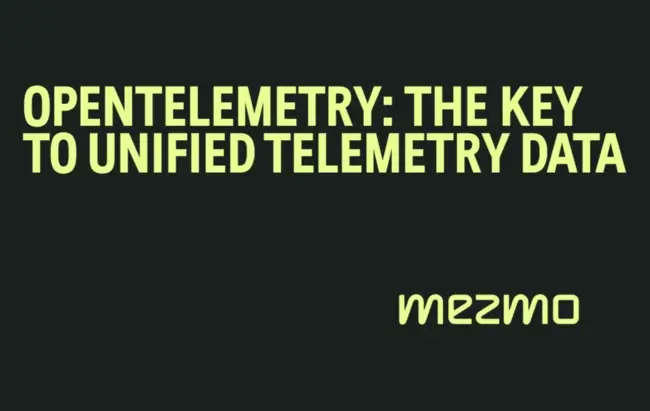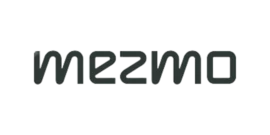OpenTelemetry (OTel) is an open-source framework designed to standardize and automate telemetry data collection, enabling you to collect, process, and distribute telemetry data from your system across vendors. Telemetry data is traditionally in disparate formats, and OTel serves as a universal standard to support data management and portability.
OTel also offers a collection of APIs, SDKs, and tools that you can use to instrument, generate, collect, and export telemetry data such as traces, metrics, and logs.

HOW OTEL WORKS
Monitoring software systems is like monitoring your health with several key parameters that indicate where you stand and what corrective actions are necessary. The data for heart rate, steps taken during the day, weight, calorie intake, sleep patterns, and other assessments come from different sources in their own formats. A comprehensive health tracker streamlines these observations, analyzes them, identifies patterns, detects changes, and alerts to prevent potential issues.
OTel works similar to the health tracker, as an open and standardized method for collecting uniform telemetry data across distributed applications. It helps you monitor your software systems by focusing on analyzing logs and traces, interpreting metrics, detecting anomalies, and taking timely actions such as preventing security threats. OTel simplifies telemetry data management across multiple languages and platforms with unified standards. No more worries about different data formats, multiple configurations, and complicated integrations.
WHY UNIVERSAL STANDARDS ARE IMPORTANT IN TELEMETRY
Your modern cloud-native systems generate high volumes of logs, traces, and metrics, which different agents collect in vendor-specific formats. This situation usually limits your options, locking you in with specific vendors. How often have you found this annoying? How often have you been unable to change vendors or have a mix of tools from different vendors?
A common standard is very much a necessity if you want to focus more on generating insights from telemetry data than managing it. As telemetry matures, the need for portability and interoperability is becoming evident. OTel addresses this need with universal standards, which makes it easy to integrate telemetry data into existing systems without any custom development.
Universal standards offer several advantages, including:
- Interoperability - Telemetry data gathered from one source in your system can be understood and used by a variety of monitoring and analytical tools without any compatibility issues. Standardized formats and protocols also help you reduce complexity in managing telemetry data.
- Portability - You can choose different tools or switch between different vendors without a lot of headaches.
- Cost Saving - Reduced efforts in integrating different tools save you time and money.
- Scalability - Your telemetry solutions can grow effortlessly without significant changes and custom development.
Mezmo: Taking Control of Your Telemetry Data
Telemetry data pipelines are designed to collect, process and transmit telemetry data from various sources towards a place where businesses can store,

THE WHAT AND WHY OF OTEL
The universal standard for telemetry began as two open-source projects of the Cloud Native Computing Foundation (CNCF), called OpenCensus and OpenTracing. In 2020, they were merged into OTel, which soon found favor from the open-source community to become the de facto standard of telemetry data. OTel can collect data from diverse systems and export processed data to any number of endpoints simultaneously, including open-source and commercial solutions.
It supports the following three types of telemetry data.
- Traces - captures a request’s journey in your application. It can help you identify bottlenecks or malfunctions.
- Logs - a record of an action, occurrence, or state in your application with context, timestamp, and security levels. It can help you assess your application behavior and debug issues.
- Metrics - point-in-time measurements over intervals of time. They help you assess the health and resource utilization of your application.
It also works for a large number of popular languages, including Python and Rust, and there are additional community-supported language implementations available.
OTel delivers the key benefits of universal standards - interoperability, portability, cost savings, and scalability described earlier. It also offers out-of-the-box instrumentation to integrate OpenTelemetry into your application and services to emit telemetry data, making it easy to integrate telemetry data and streamline how you analyze your system’s state, behavior, and performance. With the market shift to OTel, it pushed commercial vendors to shift their focus to analysis, visualization, and other unique offerings to help you unlock the massive potential of telemetry data instead of proprietary formats.
Mezmo Webinar: Telemetry Pipelines: Reduce Costs & Gain Better Insights
Managing the tsunami of telemetry data (logs, metrics, traces, events) is a major challenge for DevOps, site reliability engineers (SREs), and securit

Typical use cases for OTel include cloud-native distributed applications that use microservices, containers, serverless functions, and other cloud-based technologies. You can use OTel for distributed tracing for microservices, infrastructure monitoring, and logging for structured event collection, to name a few cases. Empower your team to quickly diagnose issues, optimize performance, generate deep insights, and ensure system reliability with its open-source, community-driven ecosystem approach.
HOW MEZMO SUPPORTS AN OPEN ECOSYSTEM WITH OPENTELEMETRY
Mezmo, a leader in telemetry pipelines, ensures that its products support OTel, so that you don’t have to worry about data formats or compatibility.
Mezmo Exporter for OpenTelemetry simplifies and centralizes the ingestion of log data from multiple sources and makes it more actionable with the enrichment of key OTel attributes. If you already use OTel, you can add this exporter to your pipelines. If you don’t, this exporter can be a good start to move towards OTel. With such an open ecosystem approach, you can focus on leveraging log data to improve issue detection and speed up issue resolution.
Considering that 58% of data practitioners have either standardized on OTel or are evaluating OTel in their organizations, it is time to embrace OTel and an open ecosystem for telemetry.
Want to learn more about how Mezmo can help? Request a demo.




Comments ( 0 )